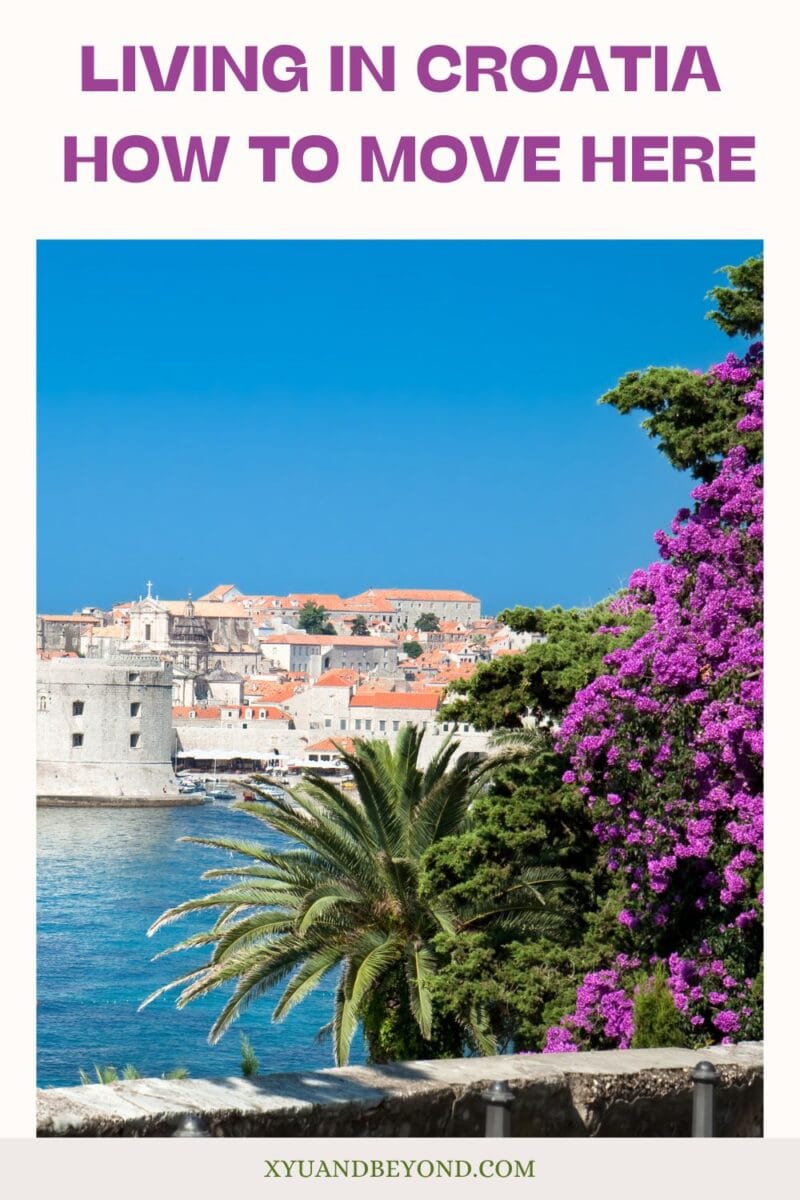Pros and Cons of Living in Croatia
Curious about what life is truly like in Croatia? Whether you’re searching for your next home base or have decided to make the move, you’re in the right place.
Located in southern Europe, Croatia is a country with a lot to offer. Its strategic location offers easy access to major European cities like Vienna, Munich, and Budapest, all just a few hours away. Croatia’s natural beauty, from its gorgeous islands, impressive mountains, and stunning coastline, is matched by its rich history and a Mediterranean climate that’s hard to beat.
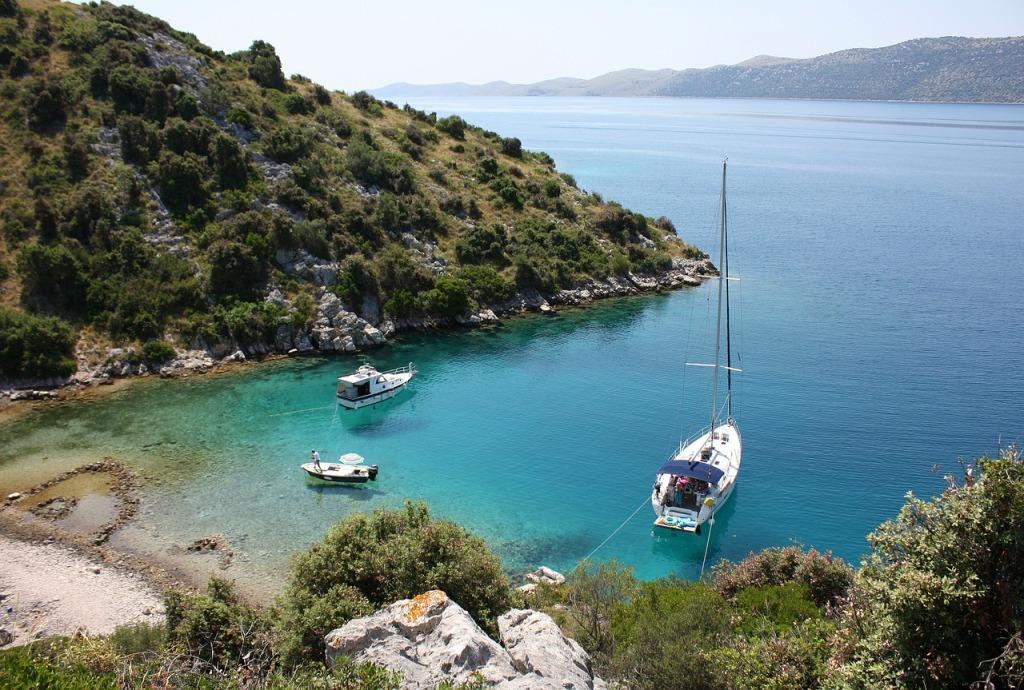
Life in Croatia is known for its laid-back and relaxed pace, making it an attractive place to call home. But like anywhere in the world, living in Croatia has its own unique set of advantages and disadvantages.
In this blog post, we’ll take a closer look at the pros and cons of living in Croatia. We’ll cover various aspects of life in this country, providing you with valuable insights into what it’s really like to reside here.
Whether you’re considering a move or simply interested in learning more, this guide will give you a comprehensive overview of life in Croatia.
Pros of Living in Croatia
Safety
Living in Croatia offers a unique sense of security that few countries can match. In fact, Croatia ranks among the top 15 safest countries in the world. Even the capital city of Zagreb is safe to visit, unlike many other global capitals.
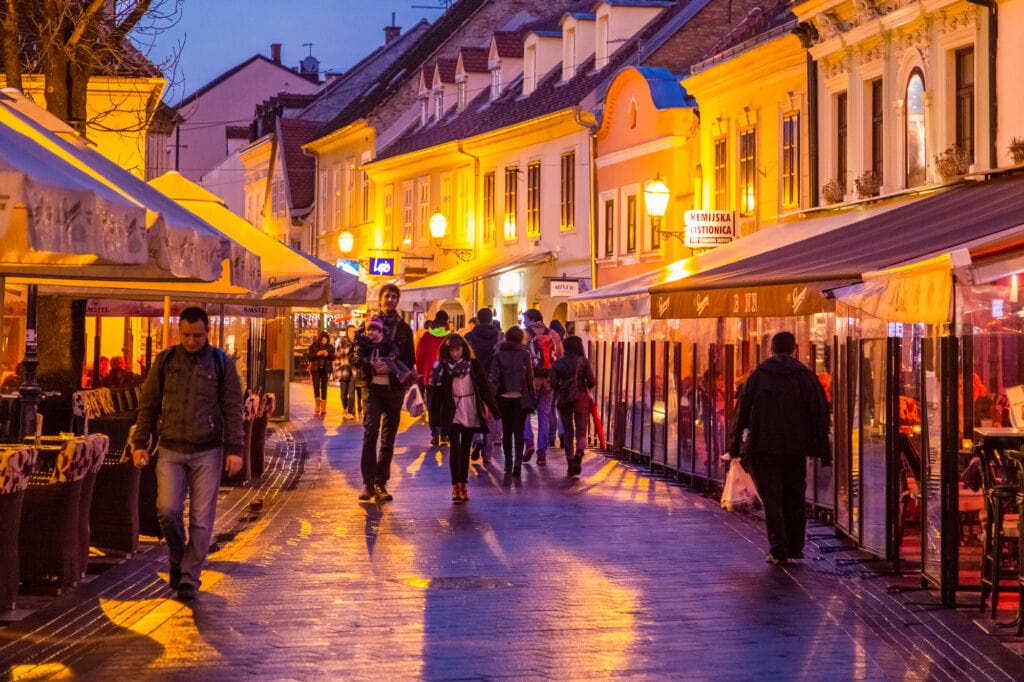
Walking around at night is safe, and it’s not uncommon to see children playing outdoors without adult supervision or confidently using public transportation on their own. The low crime rate across the country reinforces the atmosphere of safety, and there are generally no specific areas that should be avoided.
While Croatia’s safety record is impressive, it’s important to remember that there’s never a 100% guarantee of safety, no matter where you are in the world. For that reason, it’s always important to exercise common sense and be aware of your surroundings.
Laidback Lifestyle
Life in Croatia moves at a wonderfully relaxed pace, and much more slowly than it does in other countries. Here, people savor the simple pleasures of life, and there’s always time for a leisurely cup of coffee, no matter the hour.
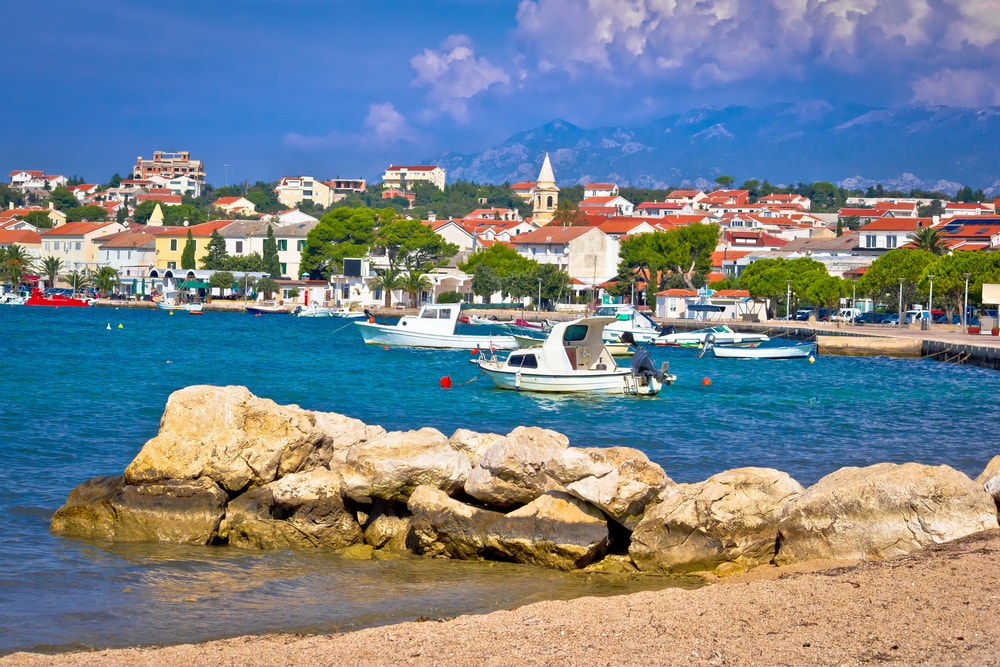
It’s not unusual to find city center cafes brimming with people, whether they’re catching up with friends, spending quality time with family, hanging out with coworkers during a break, or even conducting business over a cup of coffee. Getting coffee in Croatia is a way of life and is much more than drinking the coffee itself, but rather an excuse to socialize.

As you venture further south along the coastline, you’ll discover that the pace of life is even more mellow. Generally speaking, the concept of rushing is virtually non-existant in Croatia.
Climate
Croatia boasts a climate that is truly enjoyable year-round. With hot and dry summers, along with mild winters that bring just a touch of snow to the central and northern regions, Croatia offers an appealing mix of weather conditions.
In the continental areas, around Zagreb and the Slavonija region, you can expect average annual temperatures to range from 22 to 26°C, while they comfortably hover between 20 and 30°C along the coast. Although the months of July and August can bring scorching summer temperatures, the Adriatic Sea is always close by, offering plenty of opportunities to cool off.
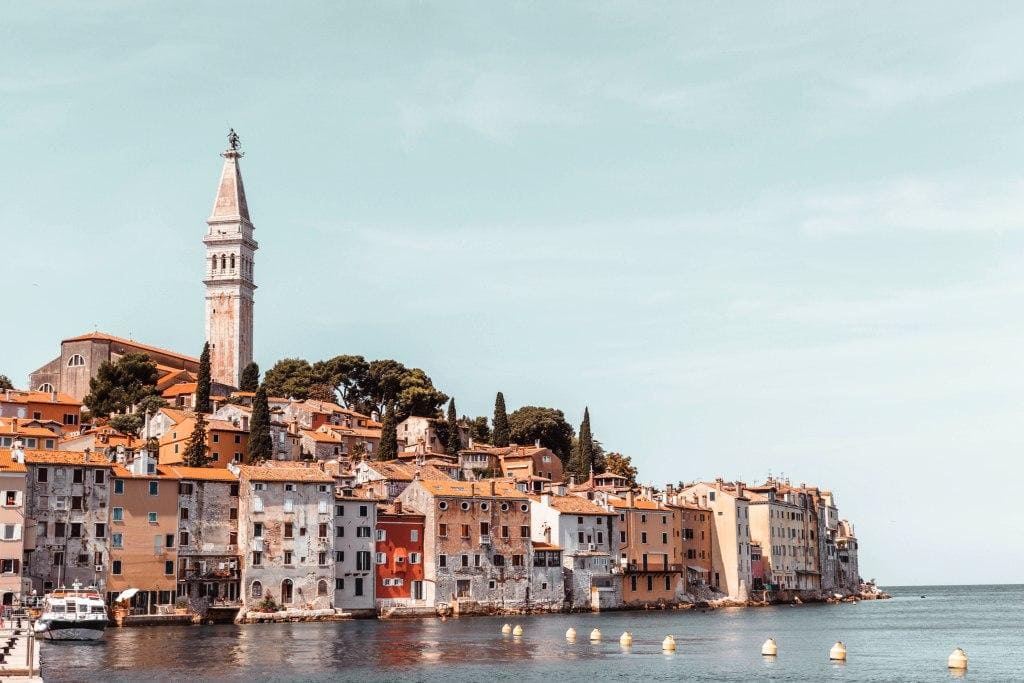
With 2,600 hours of sunshine per year on the coast, you can count on catching some rays even during the off season. There’s nothing quite like sipping coffee in a coastal town, basking in the warm winter sun. The traditional stone buildings, characteristic of the region, make the atmosphere even more brilliant.
Although snowfall is rare along the coast and on the islands, you can expect some rainfall, especially from November through February.
Natural Beauty
Croatia is a land of breathtaking natural beauty where you can easily immerse yourself in pristine landscapes. Whether you crave a dip in the sparkling Adriatic Sea or a tranquil hike through majestic mountains, you’re only a short distance away from it all.
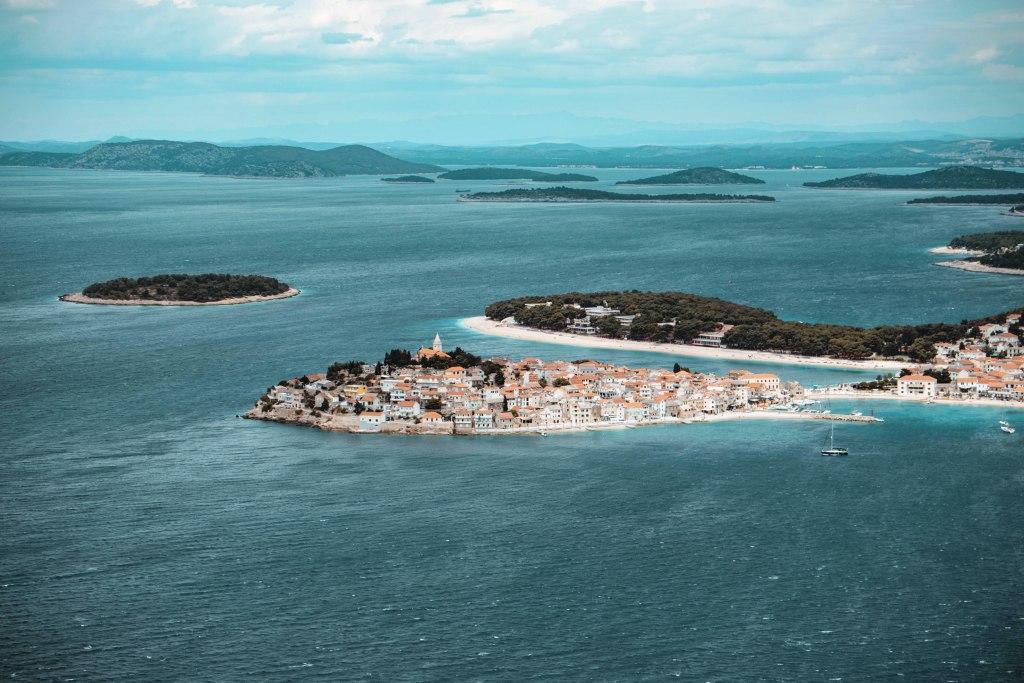
Along the coast, you’ll discover countless unspoiled beaches, many of which are rocky or pebbled, further enhancing the water clarity. In addition to beaches, there are over 1,000 islands to choose from, only 49 of which are inhabited, making it easy to find a slice of paradise without having to share the beach with hundreds of other people.
Croatia is a dream destination for outdoor enthusiasts as well, with options for biking, hiking, kayaking, camping, exploring wildlife, practicing SUP, canyoning, and even rock climbing.

The country’s national parks like Paklenica, Plitvice Lakes, and Gorski Kotar showcase awe-inspiring scenery and plenty of opportunities to connect with nature. Even Medvednica, the mountain that sits just behind Zagreb, is a favorite spot where locals escape for weekend strolls and hikes. In the winter, it transforms into a winter wonderland, with ski slopes and snow-covered trails.
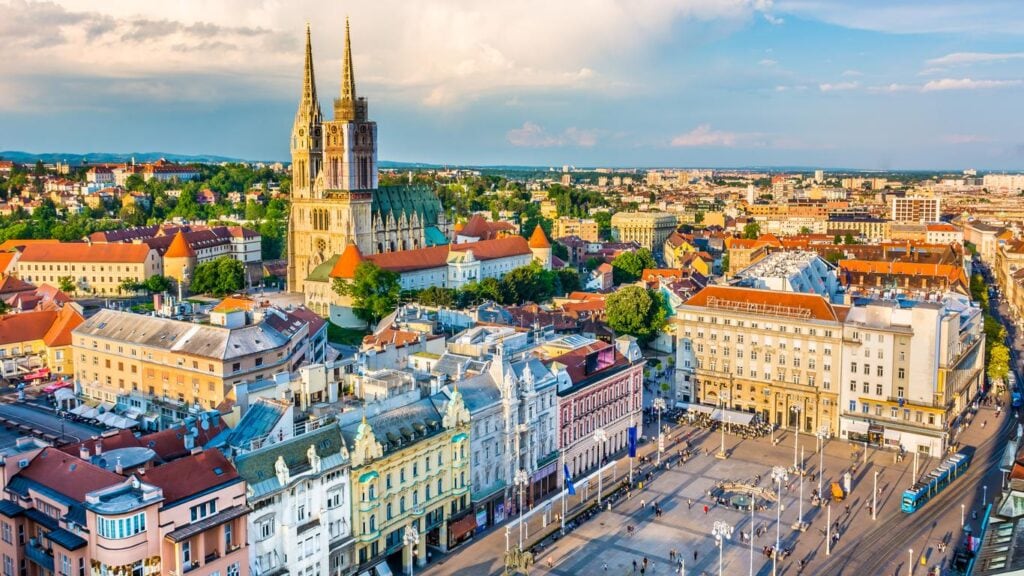
Fresh and Seasonal Food
The fresh and seasonal food in Croatia is a standout aspect of daily life. Whether you’re in a small town or bustling city like Zagreb, you’ll discover lively farmer’s markets everywhere. Many of the locals choose to shop at the markets as opposed to large supermarkets due to the sheer variety of fresh local produce, organic eggs, and high-quality cuts of meat from trusted butcher shops.

While market prices may occasionally align with, or slightly exceed, those at typical grocery stores, knowing that the ingredients have been locally sourced justifies the cost.
Beyond the abundance of fresh and seasonal groceries, the tap water in Croatia is completely safe to drink and the water quality is excellent. It’s rich in minerals, offering a distinct character compared to water in places like the USA. If you’re not used to it, it’s worth noting that this “hard” water, while perfectly healthy to consume, may lead to mineral deposits on plumbing fixtures.
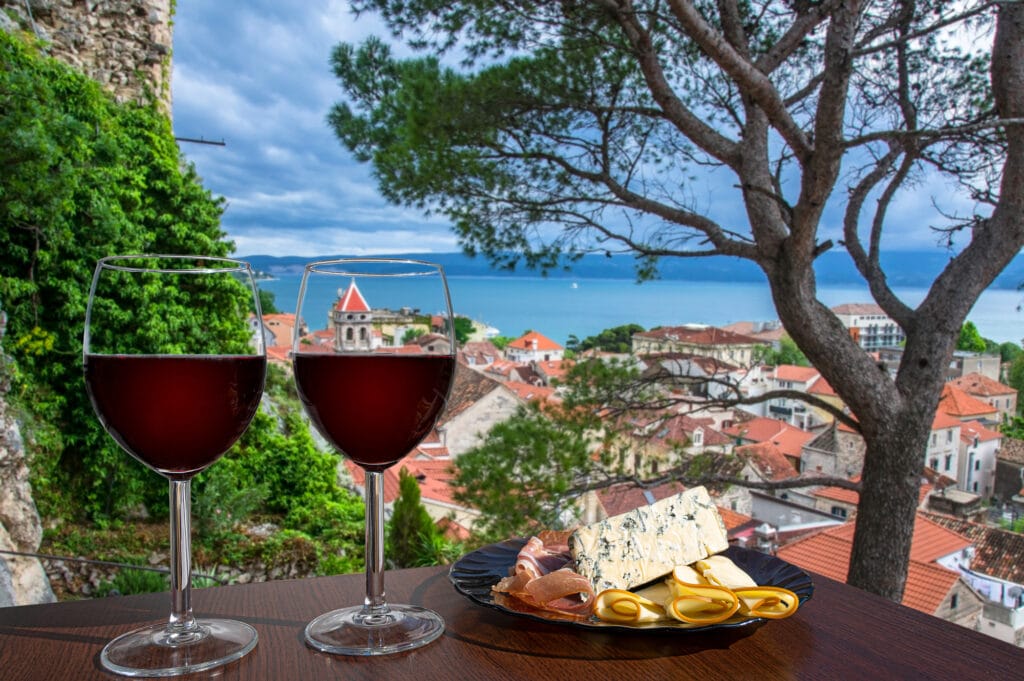
Universal Healthcare
Croatia’s universal healthcare system guarantees that all residents have access to essential medical services. While the healthcare system is not without its quirks, such as the need to make numerous calls to schedule appointments with your General Physician or encountering long wait times for specialists, it does ensure that healthcare is available to everyone.
For those who have the financial flexibility, it’s worth mentioning that private clinics can provide an alternative. These private options offer the same services as government-run clinics, but often come with significantly shorter wait times, and cost only a fraction of what you might pay in Western countries. It can be a practical option for expediting medical care in Croatia.
Cons of Living in Croatia
Limited Employment Opportunities
Unfortunately, Croatia presents challenges when it comes to employment opportunities for locals, and even more so for foreigners. If you were hoping to find your dream job in Croatia, you’re likely to be disappointed. The reality is that opportunities are scarce, and the average pay is significantly lower than in Western Europe or North America, with the majority of jobs being in tourism and hospitality.

Even if you do manage to land a job at a Croatian company, the high salary taxes can devour up to 30% of your monthly income. That, combined with the high cost of living can make it difficult to make ends meet each month. It’s important to consider these factors when contemplating employment in Croatia.
Bureaucracy
The laidback lifestyle of Croatia is fantastic until you have to deal with official matters. Whether you’re starting a business, obtaining a visa, or simply trying to file any sort of paperwork, brace yourself for a ton of red tape. These hurdles can be time consuming, and not to mention confusing, sometimes requiring the help of a legal expert or specialist in the field.
It’s also important to keep an open mind and understand that the processes may not always be straightforward, especially if you’re used to more streamlined systems in countries like the USA, Canada, or Australia. Completing even the simplest of tasks in Croatia often involves meeting various requirements and following specific procedures. But with the right mindset and a bit of persistence, you should be able to navigate these challenges.
High Cost of Living
The cost of living in Croatia has gone up significantly, especially since the introduction of the Euro as the country’s official currency in January 2023. Rental prices have skyrocketed all across the country, making it difficult for locals and expats alike to find affordable accommodation.
The cost of groceries has also increased, with prices for many basic necessities often reaching, or even surpassing, those found in Germany and the United States. This can make it especially difficult for those working on an average Croatian salary.

Nevertheless, for individuals earning foreign income, Croatia can still be considered relatively affordable when compared to many Western European countries. So while the high cost of living can pose a challenge, it can stil be manageable for some.
Language Difficulty
Croatian is a notoriously complicated language to learn, and is closely related to Serbian, Bosnian, and Slovenien. Although it shares Slavic origins with Russian and Ukrainian, there are significant disparities in vocabulary, grammar, and pronunciation. Notably, Croatian exhibits numerous grammatical features and verb conjugations that may pose challenges for English speakers to grasp.
In Croatia’s major tourist hubs like the city centers of Zagreb, Split, Zadar, and Dubrovnik, most people you come across will likely speak English. Because the country’s main business is tourism, English proficiency has become almost a necessity for residents in these areas.
However, it’s important to recognize that not everyone in Croatia works in the tourism industry or speaks fluent English.
As a gesture of respect, and to enhance your experience in the country, it’s highly recommended that you at least learn a few basic words and phrases in Croatian. This small effort can go a long way in bridging language barriers and helping to create meaningful connections with locals. Even if you can’t get a full conversation going, the fact that you took the time to learn some of their language will be appreciated.
Seasonality
Seasonality in Croatia can either be a pro or a con for you, depending on your location within the country. In Zagreb, seasonal tourism doesn’t have as great of an impact as it does along the coast; life typically continues without significant disruption throughout the year. However, some businesses may adjust their operating hours during the summer and between Christmas and New Year.
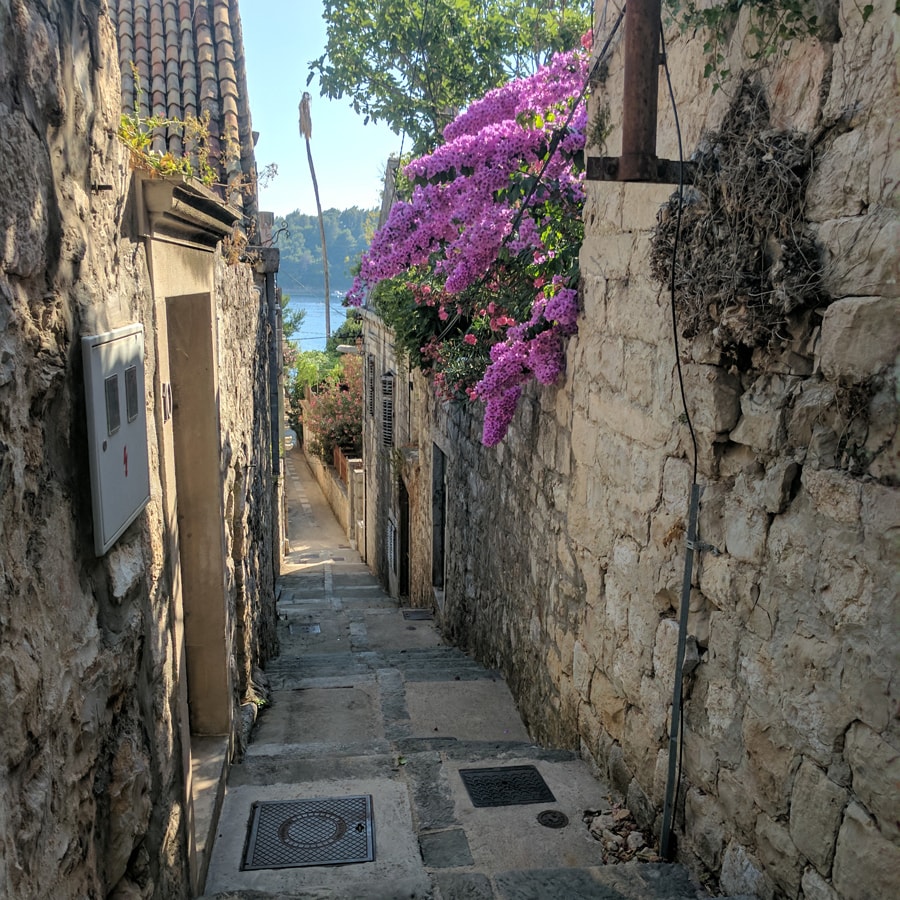
On the other hand, cities like Split or Dubrovnik experience a surge of visitors and a corresponding spike in prices during the summer months. Yet, when winter comes and the tourist season dies down, business and employment opportunities tend to decline as well.

The influence of seasonality can also impact the business landscapel. Conducting business during the months of July and August can be a challenge, as most people, including those that work in government institutions, take a minimum 2-3 week vacation. Similarly, in December and January, many Croatians flock to the ski slopes of Austria, Italy, and Switzerland for winter holidays, so business will have to wait.
If you plan to reside or do business in Croatia, it’s important to be aware of and adapt to these seasonal fluctuations.
Final Thoughts: Pros and Cons of Living in Croatia
After exploring the various pros and cons of living in Croatia, it is clear the country has a lot to offer for expats who choose to settle there. If you value a relaxed lifestyle, stunning natural beauty, and strong sense of community, Croatia can be an ideal place to live and work in Europe.
However, as with any destination, it’s important to consider the drawbacks such as the high cost of living, seasonality, and language barriers that can impact your daily life in the country. Navigating these challenges will require some patience and adaptability, but many people find the rewards worth it in the long run.
In the end, that’s the true beauty of living abroad–learning how to embrace the journey with all its intricacies! Hopefully this guide has helped you get a little bit closer to understanding what it’s like to live in Croatia, and has equipped you with the information you need for your future adventure.

